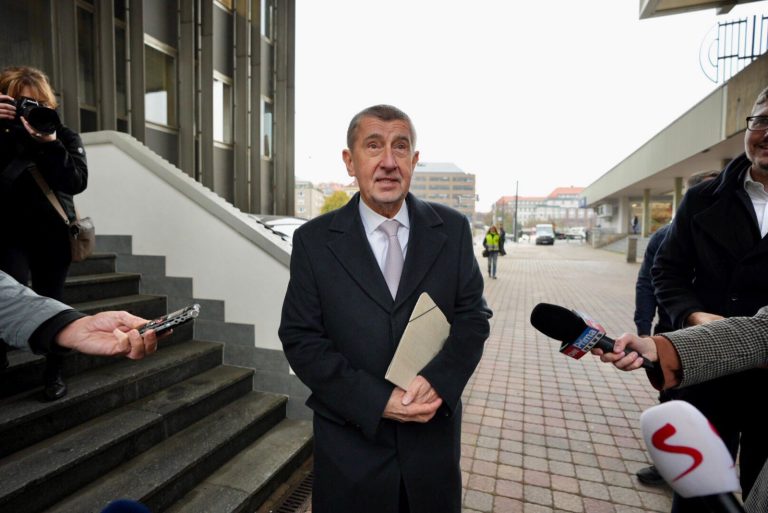Negotiators from ANO, Freedom and Direct Democracy (SPD) and the Motorists have agreed in principle on the programme of their prospective coalition government, ANO deputy leader Karel Havlicek told Czech Television on Saturday.
“We have reached an agreement at the level of the negotiating team,” Havlicek said.
The material will now be discussed by the party leaders, which may lead to partial modifications. ANO leader and potential future prime minister Andrej Babis will present the main points of the policy statement to President Petr Pavel this morning. Representatives of the future governing coalition may then meet on Wednesday to discuss the overall wording of the programme.
Babis, who was on vacation for part of the last week, was kept informed of the results of the negotiations, Havlicek said.
According to Havlicek, ANO’s election programme was “overwhelmingly” incorporated into the planned policy statement, but it was necessary to respect the opinions of the partners. “We made certain compromises, but in the end it is a joint work,” Havlicek said.
The aim was to create a programme that would reflect “the centre-right anchoring of the government with a social oversight that will be provided by the ANO movement” and would be conservative in nature.
In the Duel television discussion programme on CNN Prime News yesterday, representatives of ANO and SPD said they had ensured a vast majority of their pre-election promises had made it into the programme of their planned government. The Motorists had expressed their satisfaction with the negotiations on the programme earlier.
The government policy statement will be published only as a whole, said SPD leader Tomio Okamura, but he declined to elaborate on its individual points. He reiterated that the future cabinet will reject the introduction of emission allowances for households, planned by the EU, and will also reject the migration pact and the replacement of the Czech crown with the euro.
ANO and SPD also want to propose a ceiling on levies for self-employed workers and promise to reduce energy prices for households by CZK 1,000 per month, according to Okamura.
ANO, SPD and the Motorists had previously agreed on the division of ministries in the government, which should have 16 members. The cabinet will include nine seats for ANO, three for SPD, and four for the Motorists. In addition to the post of prime minister, ANO should have ministers for finance, industry, health, labour, education, interior, regional development and justice. Experts nominated by SPD should head the ministries of defence, agriculture and transport. The Motorists are to have the ministries of foreign affairs, culture, environment, as well as a new ministry for sport, prevention and health.
The parties are expected to discuss the allocation of posts in the Chamber of Deputies on Wednesday, ANO deputy leader Alena Schillerova said on Duel yesterday.
ANO leader Andrej Babis is expected to be the prime minister in the future government, and his movement is expected to head eight other ministries. Schillerova could again become finance minister, Karel Havlicek industry minister, Adam Vojtech health minister and Robert Plaga education minister. Former defence minister Lubomir Metnar could become interior minister, Ales Juchelka could become labour minister and Zuzana Schwarz Bartipanova could lead the Regional Development Ministry.
SPD intends to send experts to the government. For the post of defence minister it has mentioned former first deputy chief-of-staff Jaromir Zuna and Association of Defence and Security Industry deputy director Jiri Hynek. Martin Sebestyan, the former head of the State Agricultural Intervention Fund is most often mentioned as the new agriculture minister.







